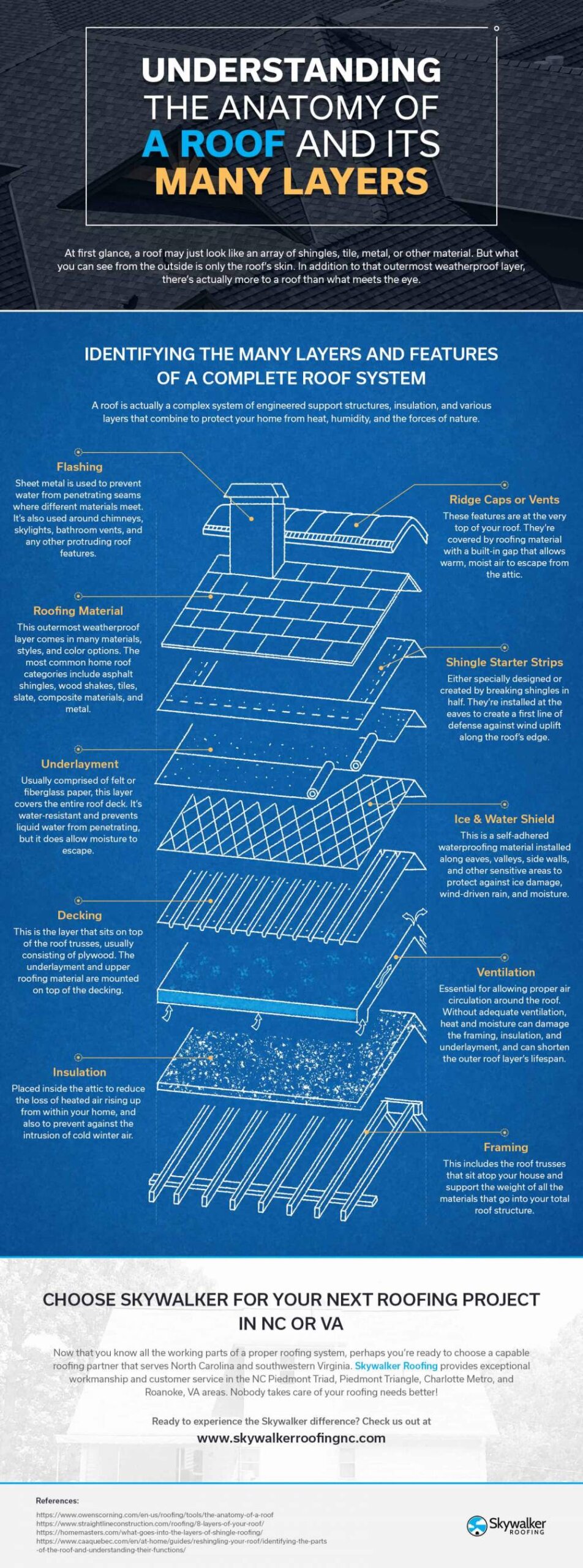Some falsely assume that a roof is little more than a layer of shingles, tile, metal, or other outer material. But that’s only part you can see from the outside; there’s actually quite a bit more to a complete roof system! Thankfully, we make everything clear in this helpful infographic!
Here are just a few of the roofing layers that we dissect, all of which play a role in helping to protect your home from heat, humidity, sun, wind, and precipitation:
- Ventilation – Essential for allowing proper air circulation around the roof. Without adequate ventilation, heat and moisture can damage the framing, insulation and underlayment, and can shorten the outer roof layer’s lifespan.
- Ice & Water Shield – This is a self-adhered waterproofing material installed along eaves, valleys, side walls, and other sensitive areas to protect against ice damage, wind-driven rain, and moisture.
- Shingle Starter Strips – Either specially designed, or created by breaking shingles in half. They’re installed at the eaves to create a first line of defense against wind uplift along the roof’s edge.
- Roofing Material – This outermost weatherproof layer comes in many material, style and color options. The most common home roof categories include asphalt shingles, wood shakes, tiles, slate, composite materials, and metal.
- Flashing – Sheet metal is used to prevent water from penetrating seams where different materials meet. It’s also used around chimneys, skylights, bathroom vents, and any other protruding roof features.
Ready to learn more? Check out the complete infographic from your friends at Skywalker Roofing!

Infographic Source: https://skywalkerroofingnc.com/infographics/understanding-the-anatomy-of-a-roof-and-its-many-layers
